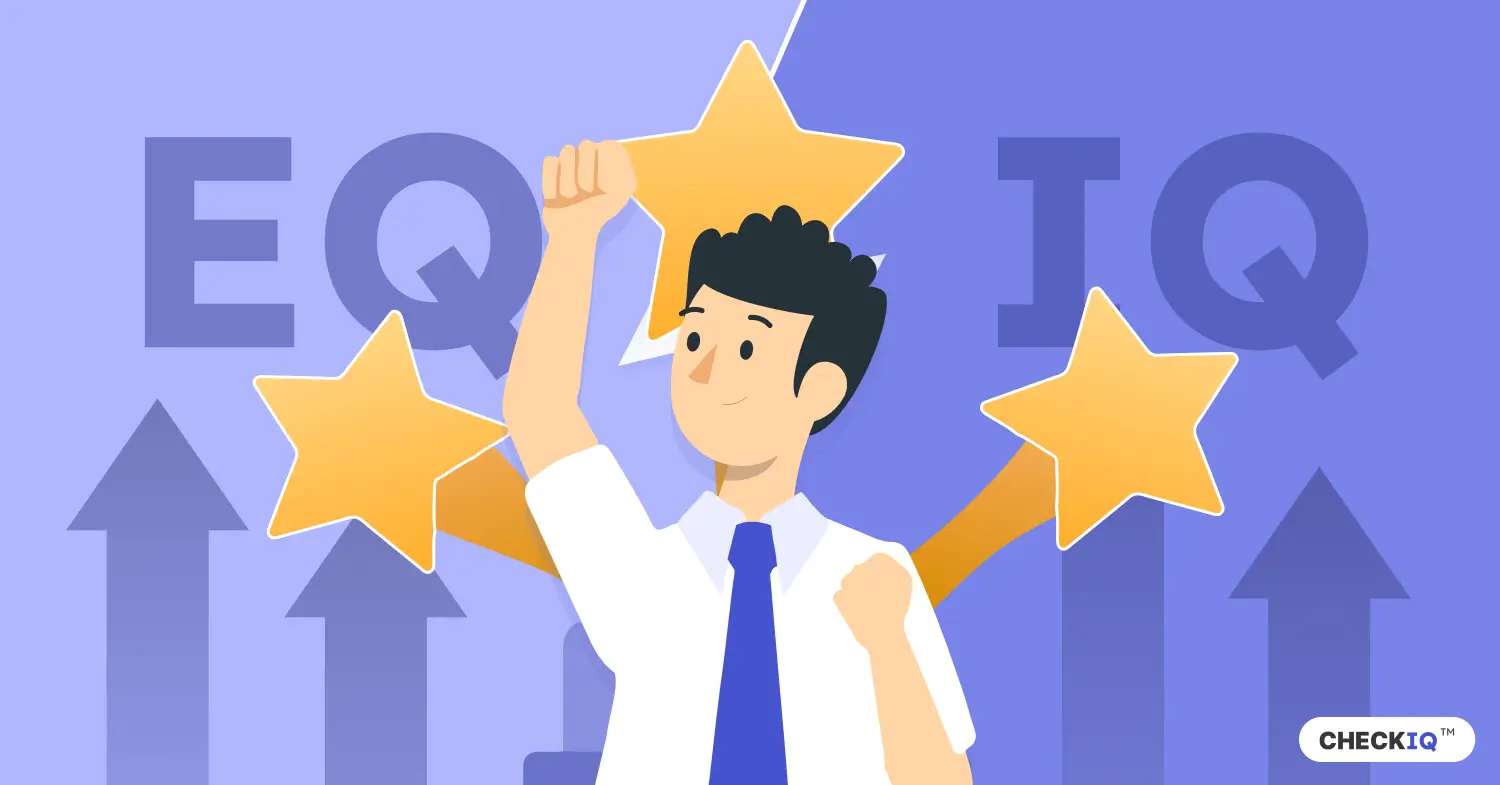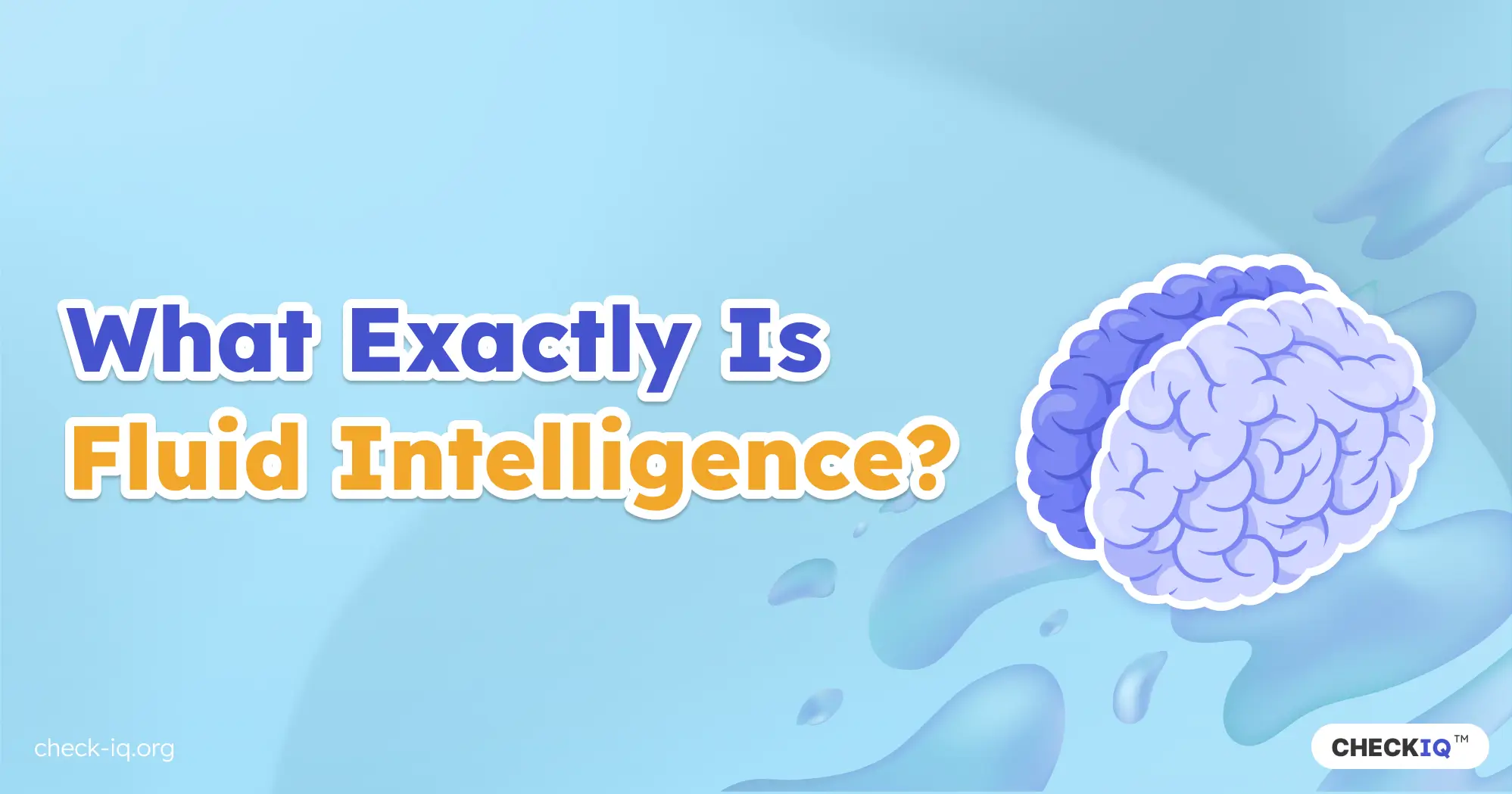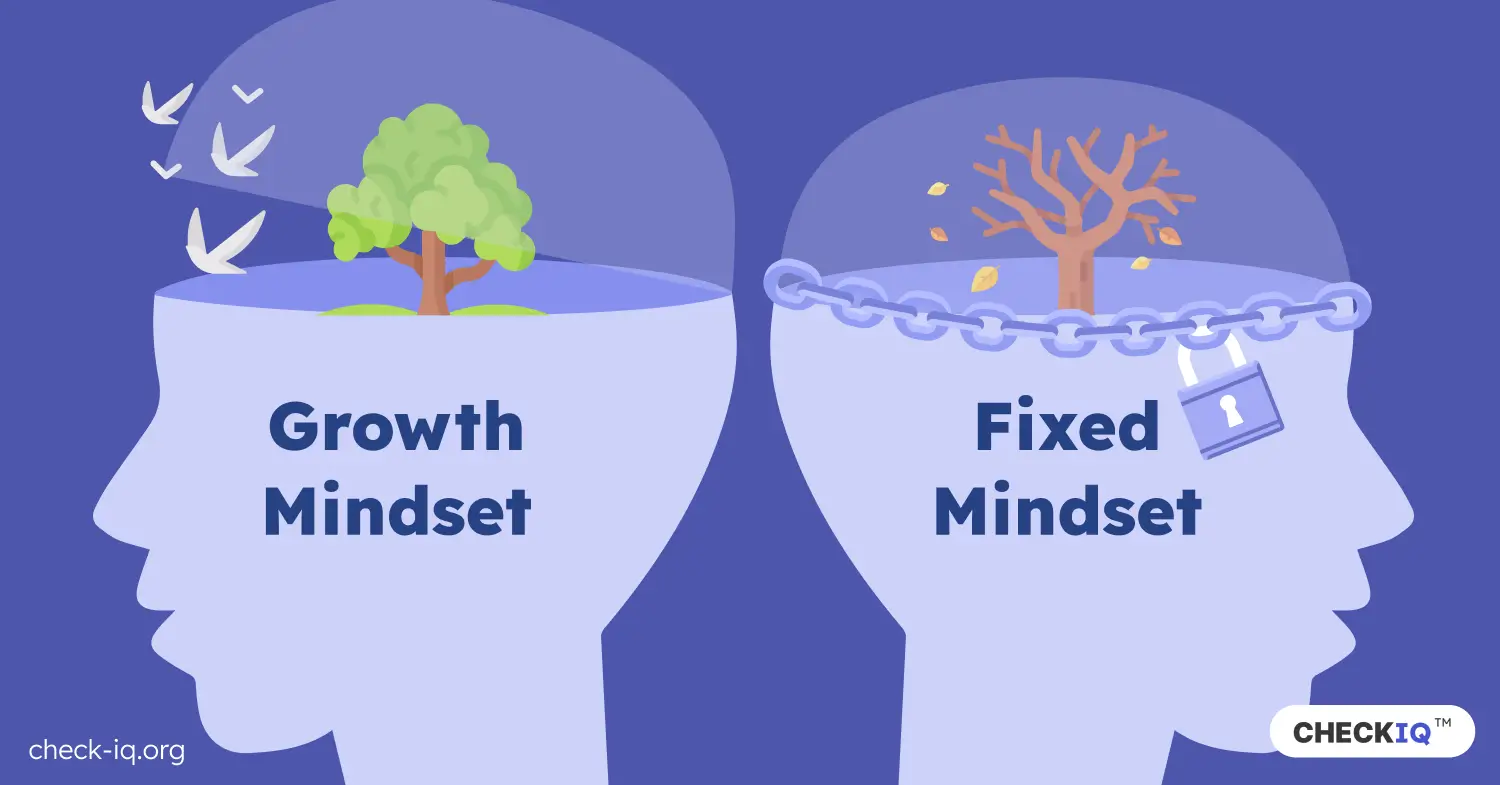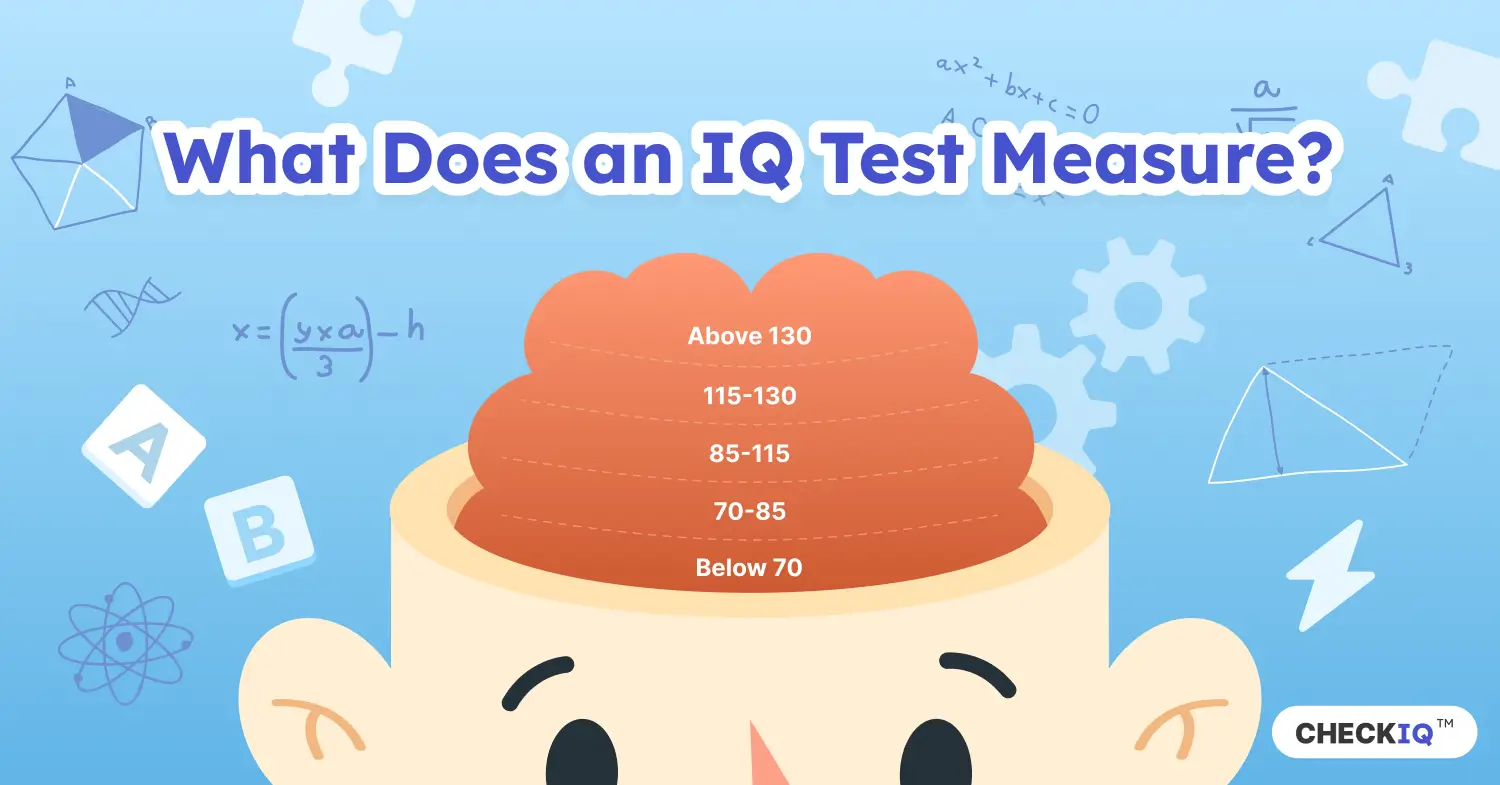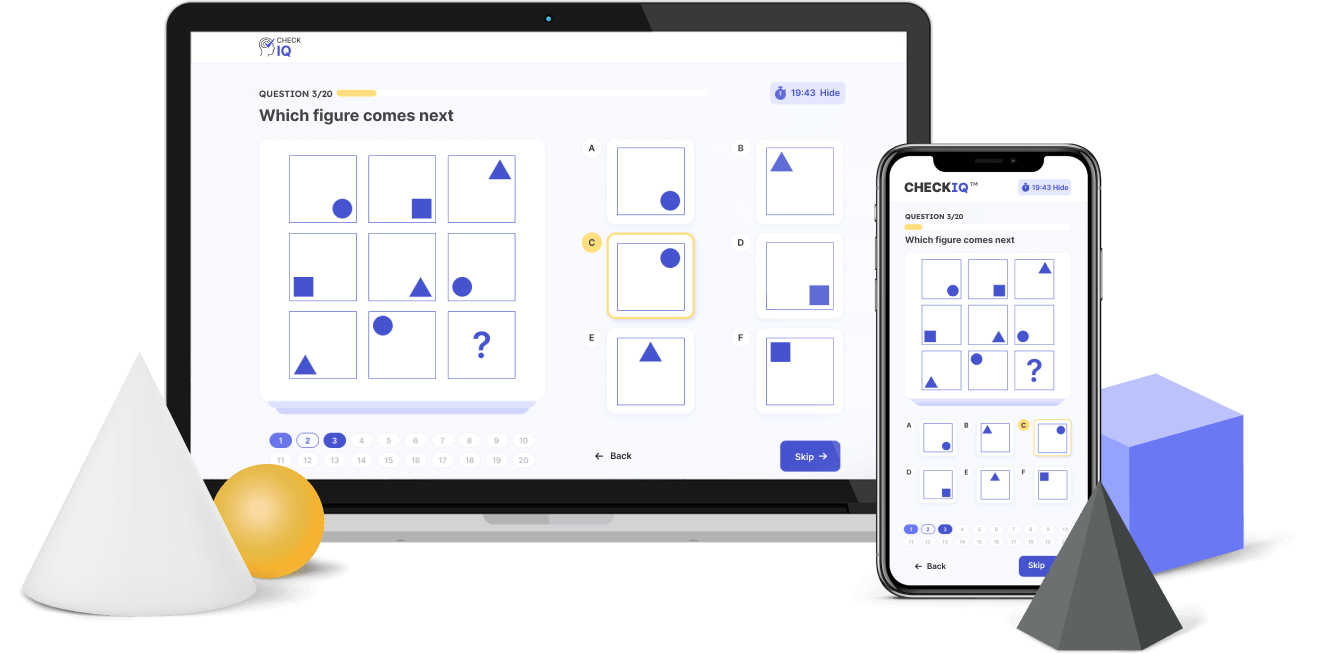Emotional Intelligence (EQ) and Intelligence Quotient (IQ) are often compared to each other, leading many to believe they are in competition. But the reality is more complex.
For example, how useful is it to excel at problem-solving and understanding complex ideas if you can’t empathize with others or manage your own emotions? When it comes to the job market, not as much as you’d think.
Sounds confusing? Let’s untangle this mystery step by step:
1. First, What Are EQ and IQ?
Emotional Quotient (EQ) and Intelligence Quotient (IQ) are two concepts that help people discover their strengths and weaknesses. EQ primarily refers to emotions and how you manage them, while IQ focuses on reasoning and using various types of information.
None of them has a singular definition, but it’s important to get the whole perspective:
What is Emotional Quotient (EQ)?
EQ, short for Emotional Quotient, measures emotional intelligence. It is your ability to recognize, control, understand, and express your emotions positively while managing relationships with empathy and wisdom. It was coined by American psychologist Daniel Goleman.
There are three main models used to define EQ:
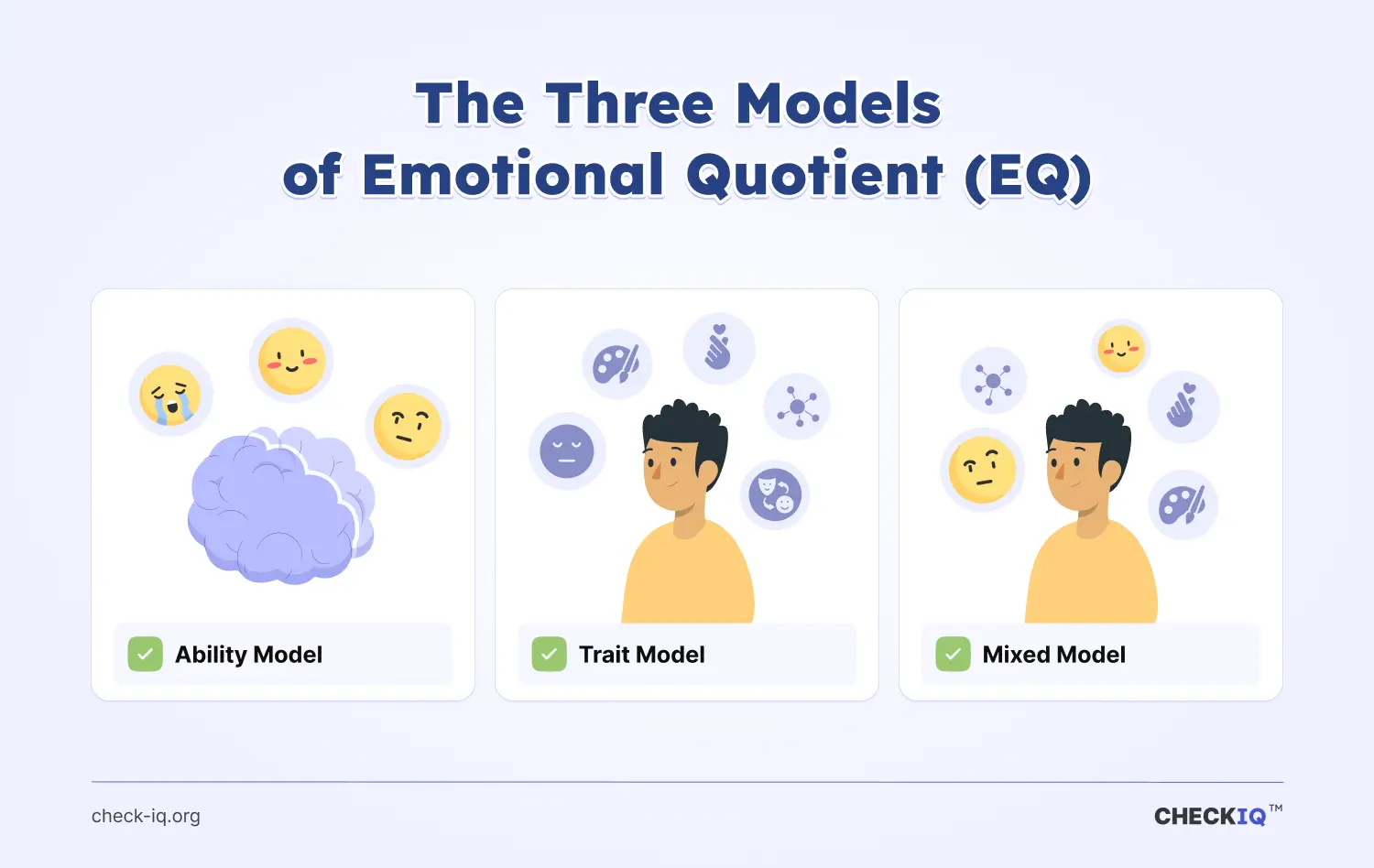
- The Ability Model: Emotional Quotient is seen as a type of natural intelligence that helps you understand and manage emotions, both yours and others. It means using emotions to think better and act more effectively, like using calmness to solve a problem under stress.
- The Trait Model: This model describes Emotional Intelligence as a part of your personality, linked to your natural tendencies and beliefs about yourself. It focuses on how your personality affects your ability to handle emotions, like naturally staying optimistic in tough situations.
- The Mixed Model: This model sees Emotional Intelligence as a mix of traits, skills, and abilities, divided into two main parts. It combines emotional skills and personality traits to show how they work together to influence your behavior, like being motivated to achieve goals and also being empathetic towards others.
A reliable 100% adaptive online IQ Test. Get your IQ score immediately.
Start My IQ Test
What is Intelligence Quotient (IQ) ?
IQ tests evaluate various mental abilities like reasoning speed, problem-solving skills, and abstract thinking. It is measured through IQ tests that can be delivered online or in-person.
IQ is often seen as an indicator of academic and analytical performance. It plays a significant role in education and careers. High IQ people typically grasp complex concepts easily and excel in strategic tasks, which can be crucial in certain professions.
However, IQ tests don’t measure the same things. If there’s a certain ability you’d like to know more about, make sure the test you choose to complete measures it.
2. EQ vs. IQ: Two Types of Intelligence
Now, let's bring EQ and IQ into the same ring. IQ might help you nail that math problem or write flawless code, but EQ gives you the finesse to handle a fuming client or resolve team conflicts gracefully.
Life often throws challenges that need more than just a high IQ; they require the emotional insight to feel out the situation and react appropriately.
Even so, both types of intelligence shape your path to success, so make sure to contribute to their development as much as you can.
Balancing IQ and EQ at work
Whether it's your first job or you're aiming for a promotion, balancing high EQ with a strong IQ makes a big difference. While a strong IQ helps you grasp the technical aspects of your role, EQ enables effective collaboration, confident leadership, and a workplace that values the human touch.
For example, your ability to solve complex problems and think strategically might land you the job. Once you're in, EQ begins to shine. Emotional intelligence helps you navigate daily work life, from handling tough feedback to inspiring your team after a setback.
Emotional intelligence is what makes the difference when you hit a roadblock: instead of giving up, you use your EQ to keep everyone motivated and find a solution together. Similarly, when conflicts arise within your team, your EQ allows you to mediate effectively, ensuring that everyone feels heard and valued. This is what contributes to a positive work environment.
Do employers prefer high EQ over high IQ?
When employers sift through stacks of applications, they're increasingly looking beyond test scores and accolades.
A crucial question emerges: Can this person work well with others? This question is reshaping traditional hiring practices as more leaders prioritize candidates with high EQ. Research shows that emotional intelligence plays a huge role in career success, often more than IQ or specific job skills.

Today’s job market values adaptability, innovation, and emotional intelligence. Many companies aren't just seeking smart employees - they want professionals who are empathetic and emotionally savvy.
High EQ gives you an edge: you can understand office dynamics, support stressed colleagues, and lead with compassion.
In team meetings, those with high EQ communicate tactfully and can calm workplace tensions. Their presence creates a positive, productive atmosphere and leads to happier, more cohesive teams. These qualities inevitably catch an employer's eye, making high EQ a highly sought-after trait in today's job market.
This shift is here to stay. Research shows that individuals with high emotional intelligence often hold teams together, guiding them through complex projects and tough client negotiations. High EQ is crucial in roles that require negotiation and leadership, where managing emotions is as important as managing budgets.
3. How to Improve Your EQ and IQ for Greater Success
Taking an EQ test can help identify your strengths and areas for improvement.
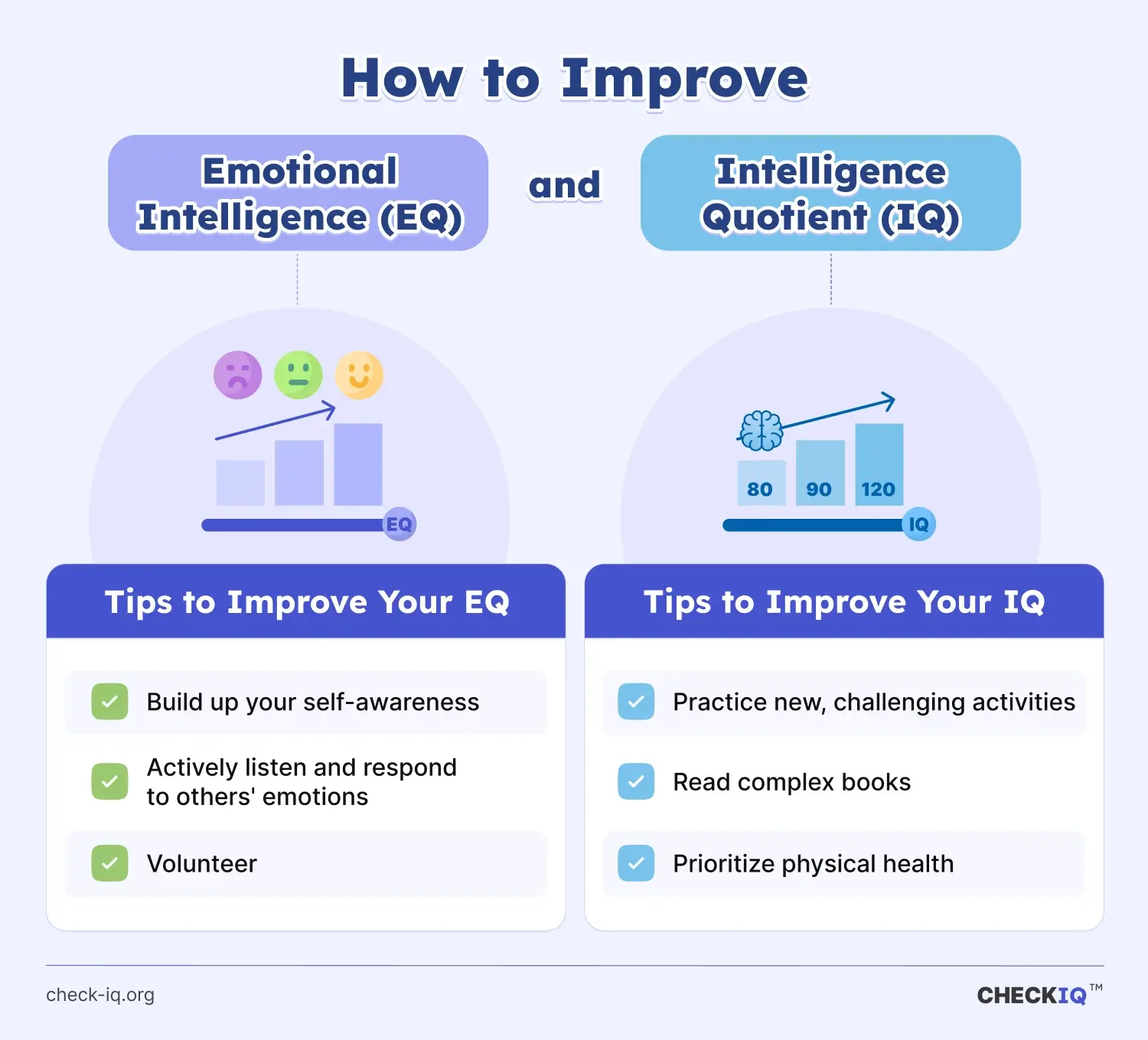
Tips to improve your emotional intelligence
Increasing your emotional intelligence is like planting a garden; it takes time, care, and a bit of know-how. So, here’s what you can do:
- Start with self-awareness. Reflect on your emotions throughout the day and try to analyze them from more than one perspective. Journaling can be a good friend here, helping you track patterns and add labels to how you’re feeling over time.
- Actively listen to others and respond to their emotions to build deeper connections. In professional settings, high EQ can smooth over sensitive business negotiations and rally support during complex projects. At home, it improves understanding and strengthens relationships.
- Volunteering offers a powerful way to improve your EQ. Engaging in community service not only helps those in need but also hones your empathy, a cornerstone of emotional intelligence. Balancing personal growth with community involvement nurtures a well-rounded character.
If you’re not sure about your level of Emotional Intelligence, taking an EQ test can help identify your strengths and areas for improvement.
Tips to improve your IQ
Challenging your brain and maintaining a healthy lifestyle are key ways to improve your IQ. Here’s more about it:
- According to Harvard Health Publishing, practicing new and challenging activities builds and maintains cognitive skills by engaging different cognitive functions. Dr. John N. Morris from the Harvard-affiliated Institute for Aging Research states, "Embracing a new activity that also forces you to think and learn and requires ongoing practice can be one of the best ways to keep the brain healthy." Play puzzles, strategy games, brain teasers, and IQ tests, to sharpen cognitive abilities. These activities stimulate different parts of your brain, improving your problem-solving skills and cognitive flexibility. They can help you better prepare for an IQ test.
- Another example of a challenging activity that can improve your intelligence is to read complex books. Choose genres that interest you and push your boundaries with challenging material. Reading has a significant impact on overall academic success. For example, a study of identical twins in the UK found that differences in childhood reading skills affected intelligence later in life, both verbal and nonverbal. Regular reading expands vocabulary, improves writing skills, and enhances concentration and intellectual stamina.
- Prioritize physical health with proper nutrition, sleep, and exercise to enhance cognitive performance. A balanced diet, adequate rest, and regular exercise keep your brain sharp and ready for challenges.
4. FAQ on EQ vs IQ
Are people with high EQ more successful than those with high IQ?
Many indicators say yes. When you can manage and understand your emotions and those around you, you're bound to excel in collaborative environments, resolving conflicts effectively, and fostering strong relationships.
Plus, emotional intelligence equips you to handle the stress of daily life, which can certainly add up over time and affect your well-being and performance.
Research from Yale University backs this up, highlighting that high EQ people are often better decision-makers because they can distinguish emotional noise from critical thinking, leading to clearer judgment and actions, especially in pressure-filled situations like the workplace.
Can both EQ and IQ be improved?
Absolutely, growth is always on the table!
For emotional intelligence, self-improvement begins with self-awareness – recognizing your emotional triggers and understanding your emotional responses. The next step is to work on your social skills, like expressing empathy and actively listening to others. There are even formal tests and training programs designed to hone your emotional intelligence.
As for intelligence quotient, traditional methods like engaging with complex problem-solving and embracing lifelong learning can give your cognitive functions a boost.
So, whether you're aiming to be more emotionally attuned or to sharpen your mind, remember that both your emotional quotient and intelligence quotient can evolve with time and effort.
How do employers test for EQ during the hiring process?
It often starts right from the interview process. Employers may pose behavioral questions that require you to recount past experiences demonstrating your ability to navigate complex social dynamics or regulate your emotions under strain.
They're listening for hints of self-awareness, motivation, empathy, and your adeptness at managing relationships. Additionally, some companies might employ specialized emotional intelligence tests that mimic real-life scenarios to see how you handle them in real-time.
It’s clear that firms value employees who possess not just technical skills or high IQs, but also the emotional acuity to thrive in a team and to adapt to the ever-changing work landscapes.

